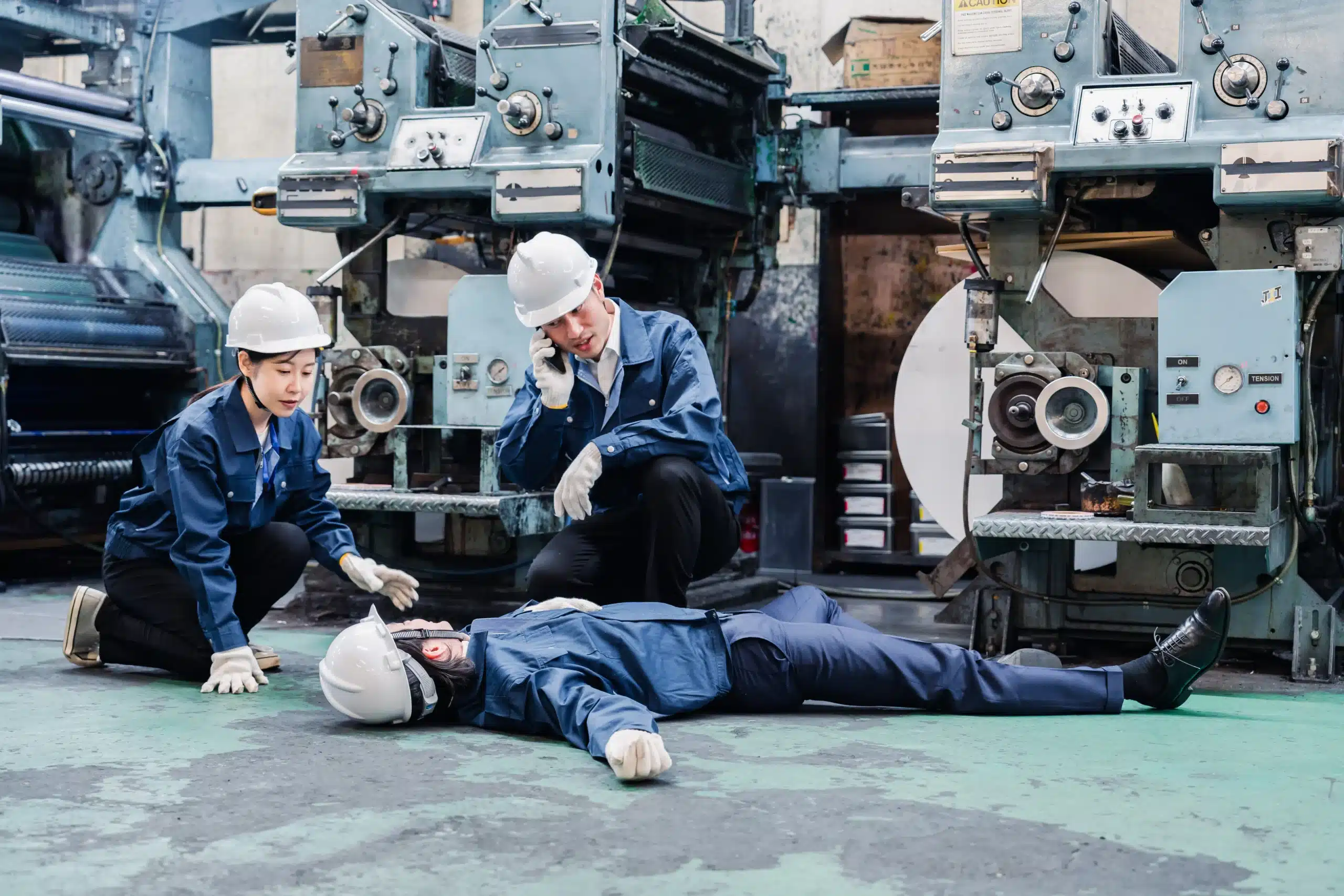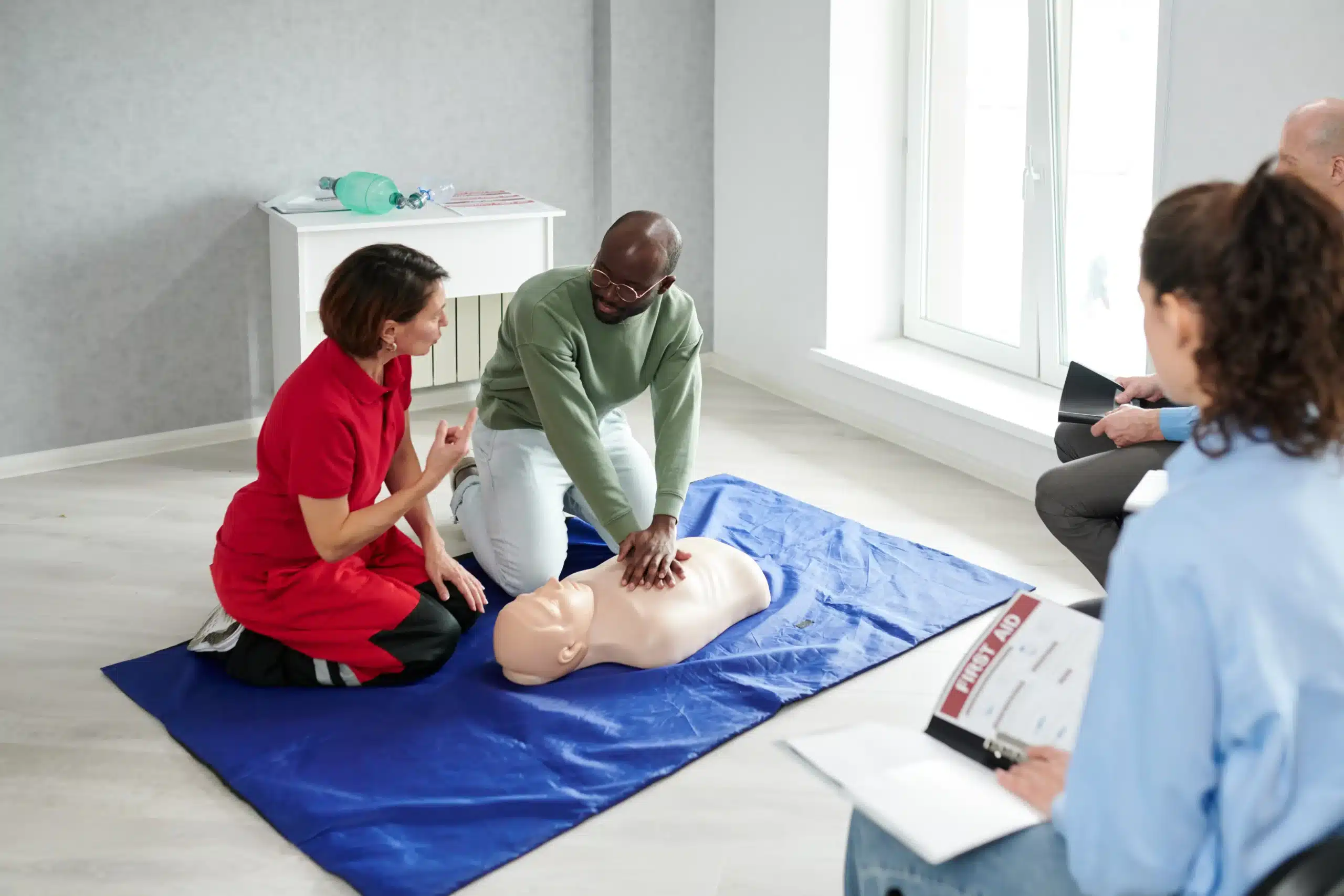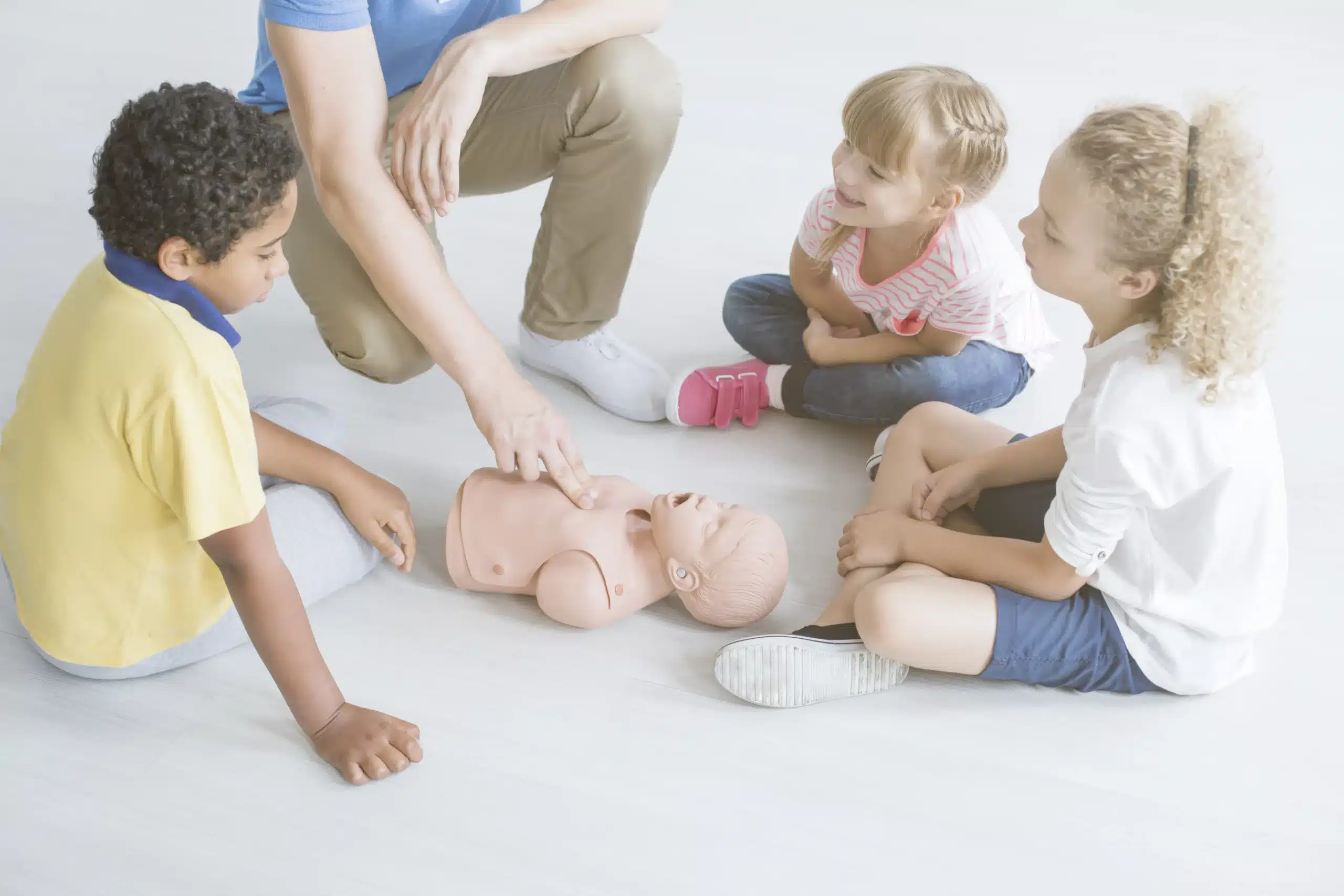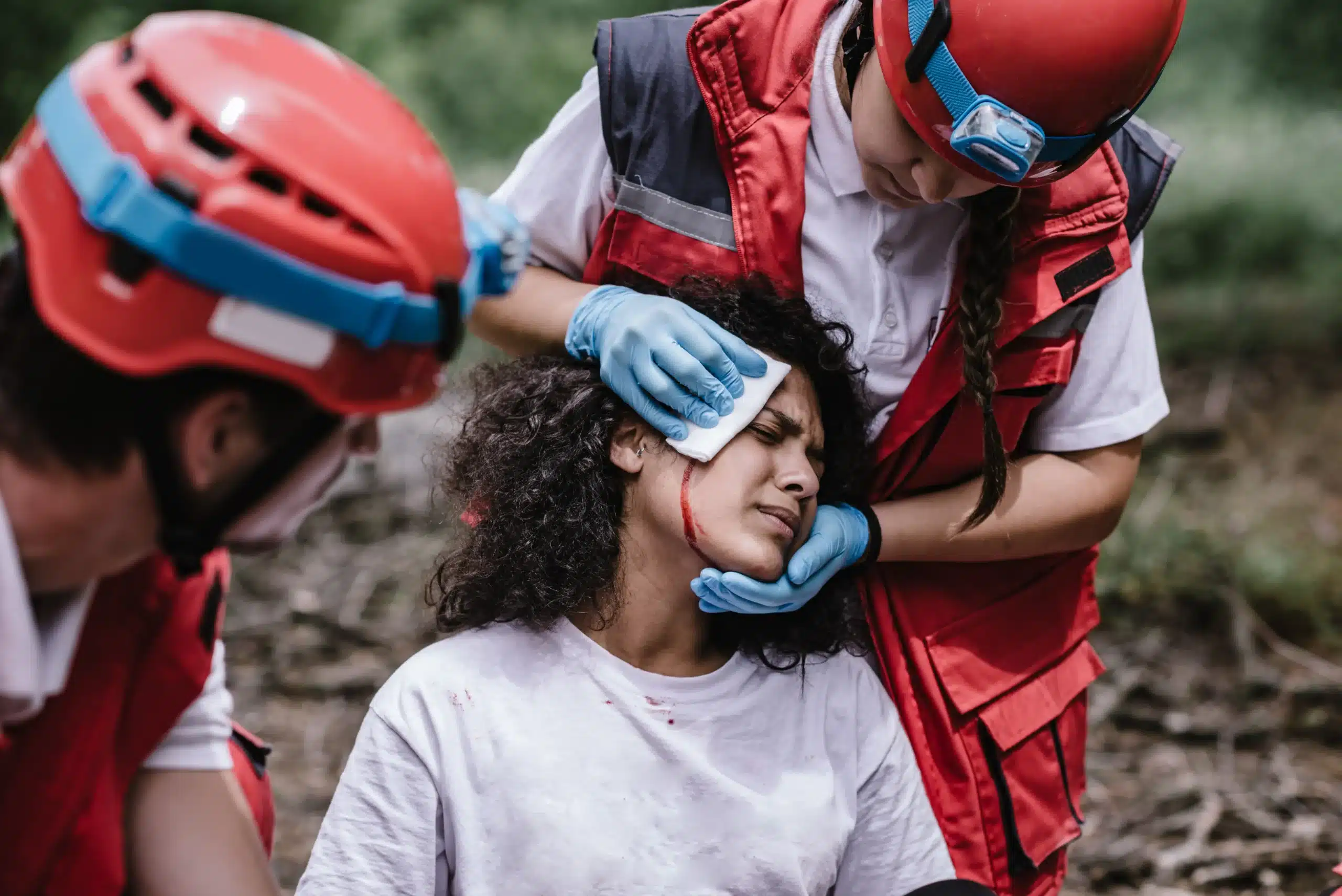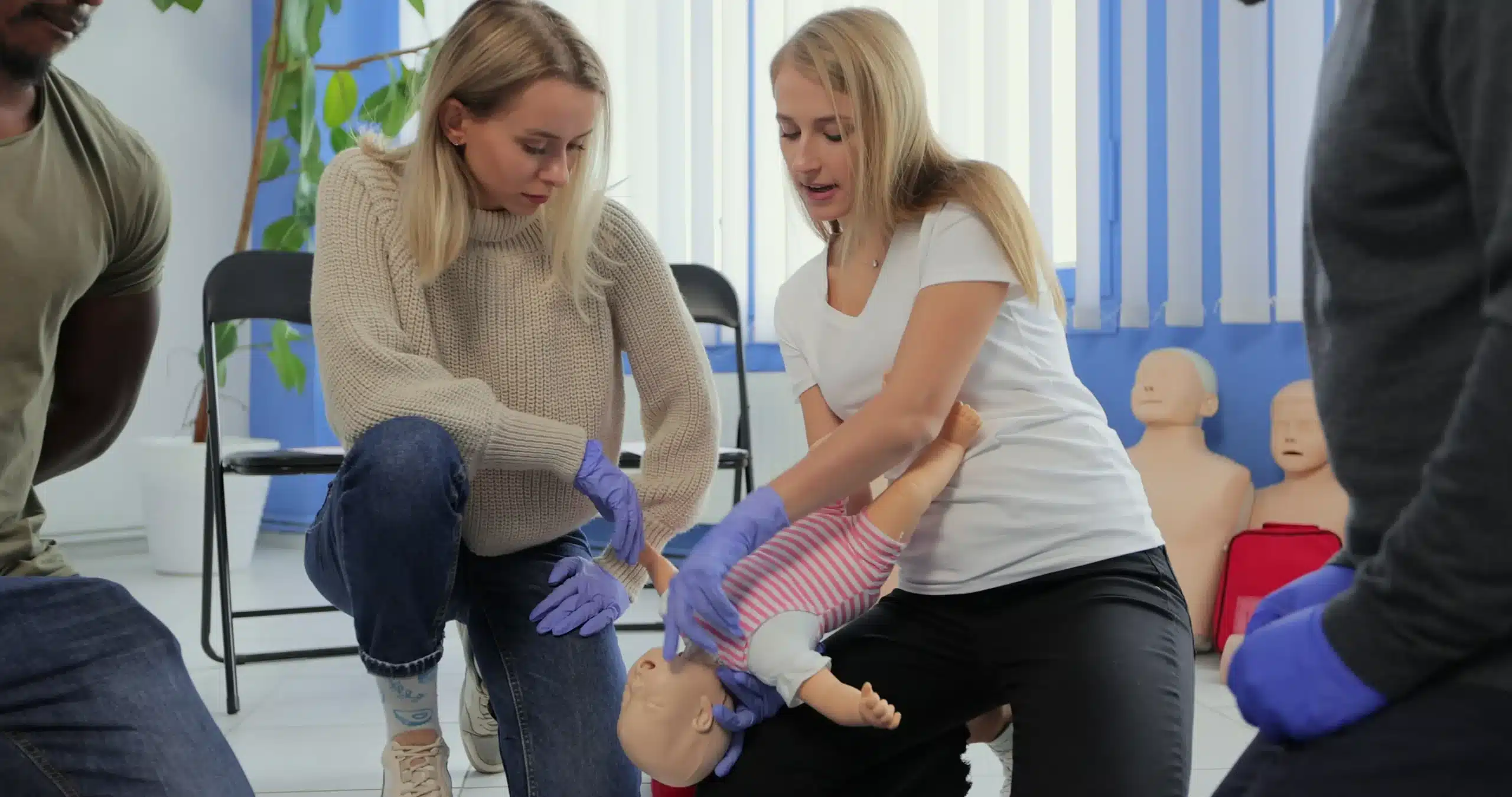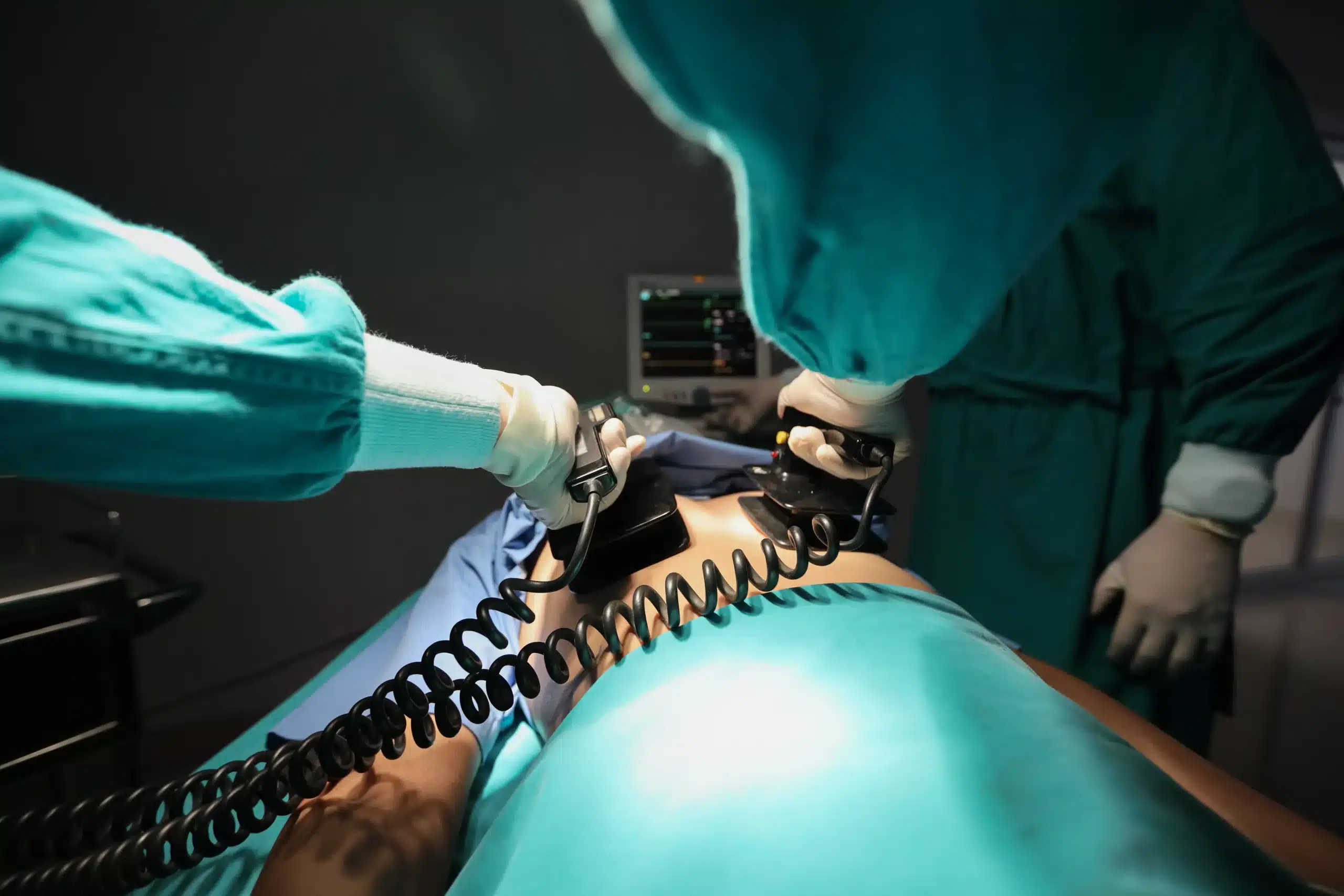Living in Mountain House, you understand the importance of a prepared community, especially when it comes to emergencies. RQI is making a difference. This innovative program focuses on improving CPR skills and confidence through regular, short practice sessions. This article explores how RQI in Mountain House is changing the game for healthcare providers and the community as a whole. We’ll discuss the core principles of RQI, its advantages over traditional CPR training, and how you can become part of a more resilient and responsive Mountain House.
Key Takeaways
- RQI offers a practical approach to CPR training: Shorter, more frequent sessions fit busy schedules and improve long-term skill retention compared to traditional methods.
- Technology enhances the RQI learning experience: Real-time feedback and flexible online modules create a more engaging and effective way to master CPR skills.
- RQI builds a more prepared community: Widespread adoption of RQI empowers more people to respond confidently in emergencies, ultimately saving lives.
What is RQI?
What is the Resuscitation Quality Improvement (RQI) program?
The Resuscitation Quality Improvement (RQI) program offers a modern approach to CPR training. It’s a subscription-based program from the American Heart Association (AHA) designed to combat the common issue of skills decline that often happens after initial CPR certification. RQI aims to give healthcare providers a flexible and convenient path to both earn and maintain their AHA credentials. Instead of lengthy classroom sessions every two years, RQI uses shorter, more frequent practice sessions to reinforce these essential lifesaving skills. This approach makes staying up-to-date with the latest AHA guidelines easier and more manageable.
How RQI differs from traditional CPR training
RQI’s core principle is “low-dose, high-frequency” training. Short, regular practice sessions are key to maintaining top-notch CPR skills. Traditional CPR training usually involves a single, longer class every two years, which can lead to skills decay. RQI flips this model, requiring less overall training time spread out over shorter, more frequent sessions. The program uses quality improvement sessions that measure and verify competence, ensuring healthcare providers stay sharp and ready to respond. This approach not only reinforces skills but also allows healthcare professionals to spend more time with patients instead of in the classroom. It’s a win-win for both providers and the people they care for.
How RQI Works
RQI represents a significant shift from traditional CPR training methods. It’s built on three core principles: low-dose, high-frequency training, technology integration, and continuous skill assessment. This approach helps healthcare providers and other certified professionals maintain their CPR skills and confidence.
Low-Dose, High-Frequency Training
Traditional CPR training often involves lengthy classes every two years, which can be inconvenient and lead to skill decay. RQI addresses this with shorter, more frequent training. Instead of one long session, you’ll engage in shorter, quarterly refreshers. This low-dose, high-frequency approach improves knowledge retention and skill mastery while requiring less time away from your patients or other responsibilities. Studies show RQI can reduce training time by up to 48% compared to traditional methods.
Technology Integration
RQI uses technology to create a more engaging and effective learning experience. RQI training stations offer real-time feedback on your CPR technique, including compression depth and rate. This immediate feedback helps refine your skills and build muscle memory. The program also includes cognitive learning modules, such as educational videos and assessments, to reinforce key concepts. You can learn more about the RQI program from the American Heart Association.
Continuous Skill Assessment
Regular assessment is crucial for maintaining CPR proficiency. The RQI program combines self-directed practice with periodic assessments to track your progress. These assessments measure your skills and identify areas for additional practice. This continuous feedback helps you stay sharp and confident in your abilities, ensuring you can deliver high-quality CPR when needed.
RQI Benefits for Mountain House
RQI training offers significant advantages for healthcare providers and the broader Mountain House community. Let’s explore some key benefits:
Improved CPR Skills and Confidence
The RQI program takes CPR training a step further than traditional methods by focusing on skill maintenance through frequent practice. This “low-dose, high-frequency” approach, described in this research study, results in more effective CPR skills and increased provider confidence. Regular practice reinforces proper techniques and builds muscle memory, leading to improved performance in real-life emergencies. This increased confidence empowers healthcare professionals to respond decisively and effectively when every second counts.
Convenient Learning and Skill Retention
RQI’s emphasis on quarterly refresher sessions combats skill decay, a common challenge with traditional CPR training. Instead of lengthy classroom sessions every two years, RQI offers shorter, more frequent practice opportunities. RQI Partners notes this approach requires less training time, allowing healthcare providers to dedicate more time to patient care. The flexible, self-directed nature of RQI makes it easier to fit into busy schedules, ensuring skills stay sharp.
Better Patient Outcomes
Improved CPR skills directly contribute to better patient outcomes. By equipping healthcare providers with the tools and confidence to deliver high-quality CPR, RQI contributes to increased survival rates for cardiac arrest victims. The importance of RQI in enhancing patient care is well-documented, highlighting its potential to make a real difference.
Community Impact on Emergency Response
RQI’s impact extends beyond individual healthcare providers to the entire Mountain House community. RQI Partners is dedicated to saving more lives from sudden cardiac arrest. Promoting widespread RQI adoption strengthens the chain of survival and creates a more prepared and responsive community. This means more people equipped to provide immediate assistance during cardiac emergencies, potentially saving lives and improving overall community health.
RQI in Mountain House: Getting Started
So, you’re ready to explore RQI training? Great! This section covers everything you need to know to get started in Mountain House.
Local Partnerships and Initiatives
RQI is gaining traction nationwide, thanks in part to partnerships with organizations like the American Heart Association. RQI Partners is proud to be a part of the American Heart Association, further solidifying its reputation as a reliable and effective training program. These collaborations aim to improve resuscitation skills and contribute to better patient outcomes. While specific local partnerships in Mountain House may vary, connecting with our team at Safety Training Seminars will provide you with the most up-to-date information on available programs and initiatives. We’re committed to staying informed about the latest developments in RQI and can guide you toward the right resources. You can also explore our low price guarantee for more information on affordable training options.
Who Can Participate?
RQI is designed for healthcare professionals who regularly perform CPR. This includes nurses, doctors, paramedics, and other certified personnel. The program’s blended learning approach combines online learning with hands-on simulation, making it accessible and adaptable to various learning styles. Whether you’re a seasoned healthcare provider or new to the field, RQI offers a structured path to maintain and improve your life-saving skills. Contact us to learn more about eligibility requirements and how RQI can fit into your professional development. We offer a range of AHA courses to meet your specific needs.
Training Options and Accessibility
One of the key advantages of RQI is its flexibility. The program requires significantly less training time than traditional CPR courses, with quarterly refresher sessions designed to be quick and efficient, often taking just 15-30 minutes to complete. This approach focuses on consistent practice to maintain skills proficiency, rather than lengthy, infrequent recertification courses. This makes RQI a practical and sustainable solution for busy professionals. We offer various training schedules and formats at Safety Training Seminars in Livermore, serving the surrounding areas, including Mountain House. Reach out to us to discuss the best options for your schedule and learning preferences. We also offer discount group classes for added convenience and cost savings. Check out our RQI classes page for more details.
Technology and RQI
RQI wouldn’t be as effective without its smart use of technology. It blends online learning with hands-on practice, making it easier for healthcare providers to refresh their skills regularly. This approach helps busy professionals fit training into their schedules and keeps CPR skills sharp.
Mobile Training and eLearning
The RQI program uses a blended learning approach that combines online learning and hands-on skills practice. The eLearning modules are accessible online, allowing you to learn at your own pace, whenever it’s convenient. These modules cover essential CPR topics and prepare you for the practical simulation sessions. This flexibility is perfect for busy schedules.
Real-Time Feedback and Data Analytics
RQI training incorporates simulation stations that provide real-time feedback during practice. This immediate feedback helps you refine your technique and ensures you’re performing CPR correctly. The system also tracks your progress, giving you a clear picture of your skill development over time.
Realistic Simulation Practice
The hands-on portion of RQI uses realistic simulation, allowing you to practice your skills in a lifelike environment. This regular practice, combined with the immediate feedback from the simulation technology, builds confidence and helps you retain those crucial CPR skills. It’s about making the training practical and applicable to real-world scenarios. This focus on realism makes RQI incredibly effective.
Get Involved with RQI in Mountain House
Ready to explore RQI training? Great! This section covers finding training, accessing resources, and keeping your certifications current.
Find and Register for Training
RQI offers a more flexible and efficient approach than traditional CPR training. Instead of lengthy classroom sessions every two years, RQI incorporates shorter, more frequent refresher courses. This helps healthcare providers maintain their skills and reduces time away from patients. Our Livermore location offers convenient RQI courses for residents of Mountain House, Livermore, and Dublin. View upcoming courses and register for RQI training.
Resources for Further Learning
RQI training goes beyond just skills sessions. The program offers resources to support your learning. You’ll find valuable information on the RQI Partners website, including program details and best practices. Each RQI session typically takes just 15–30 minutes, fitting easily into your schedule. This allows you to focus on practice and receive feedback, maximizing your skill development. For those seeking other options, we also offer EMSA Child Care Health & Safety training and discount group classes.
Maintain AHA Credentials
Maintaining your American Heart Association (AHA) credentials is essential for healthcare professionals. RQI helps you do just that. The RQI 2025 program uses a low-dose, high-frequency model with quarterly refreshers, ensuring you consistently practice your skills. This approach helps you maintain competence and contributes to continuous quality improvement in resuscitation practices. Learn more about how RQI supports AHA credentialing through our CPR and First Aid certification courses. We also offer a low price guarantee to ensure you’re getting the best value for your training.
RQI Challenges and Long-Term Success
Successfully implementing the RQI program does come with its challenges. Understanding these hurdles and how to overcome them is key to long-term success and improved patient outcomes. Let’s explore some key areas to focus on.
Improve Community Engagement
Community engagement is crucial for a thriving RQI program. While the ongoing training model itself is effective, it needs buy-in from the community to truly flourish. Active participation ensures healthcare providers understand the value of RQI and stay motivated to maintain their skills. Building a strong network of RQI-trained professionals within Mountain House creates a ripple effect, leading to a more prepared and responsive community during emergencies. Consider organizing workshops, sharing success stories, and collaborating with local organizations to spread awareness and encourage participation in RQI training.
Allocate Resources Effectively
One of RQI’s biggest advantages is its efficient use of resources. Traditional CPR training often requires significant blocks of time, pulling healthcare professionals away from their patients. RQI, however, requires less training time overall and offers flexible, self-directed quarterly drills. This allows for better allocation of staff and resources, minimizing disruptions to patient care. This efficient approach, detailed in the RQI Performance Improvement Programs, allows facilities to maintain high-quality CPR competence without sacrificing valuable time.
Ensure Continuous Skill Improvement
RQI’s structure promotes continuous skill improvement through short, frequent refresher sessions. These sessions incorporate cognitive learning modules, like educational videos and assessments, combined with hands-on skills practice. This blended approach reinforces both the theoretical knowledge and practical application of CPR techniques. Because these refresher sessions are short and easily integrated into a busy schedule, providers are more likely to maintain their skills, leading to better patient outcomes. The RQI Program Overview offers a deeper look at this comprehensive approach, and the International Heart Association RQI Program Flyer highlights the positive impact of frequent refreshers.
The Future of Emergency Response in Mountain House
Mountain House, like any community, relies on the preparedness of its residents and first responders to handle emergencies. Equipping individuals with the right skills and knowledge can significantly impact outcomes, and that’s where Resuscitation Quality Improvement (RQI) comes in. It represents a shift from traditional CPR training models to a more dynamic and effective approach, promising a brighter future for emergency response within the community.
Build a Culture of Continuous Learning
Traditional CPR training often involves lengthy sessions every two years, which can be challenging to fit into busy schedules. This model can also lead to skill decay between renewals. RQI takes a different approach, focusing on shorter, more frequent refreshers to maintain crucial skills. RQI’s quarterly structure, with sessions taking significantly less time than traditional courses, makes it easier for healthcare providers and community members to stay up-to-date. This commitment to continuous learning creates a foundation for improved competence and confidence when responding to emergencies. Learn more about the benefits of this approach through RQI Partners.
Enhance Community Resilience with RQI
RQI isn’t just about individual skill improvement; it’s about building a more resilient community. By empowering more people with regularly refreshed CPR skills, we create a network of potential lifesavers. This widespread competence can make a real difference in those critical moments before professional help arrives. The RQI 2025 program emphasizes mastery learning and quality improvement, ensuring participants not only learn the techniques but also understand the importance of consistent practice. This focus on continuous improvement translates to better patient care and greater peace of mind for everyone. Investing in RQI is an investment in the health and safety of the entire Mountain House community. For a deeper look into the value of RQI, check out this guide from San Jose CPR Certification.
Related Articles
- RQI Classes in Livermore, CA – Livermore CPR Classes
- CPR Certification in Dublin: Your Guide – Livermore CPR Classes
- BLS Certification in Mountain House for Healthcare Providers – Livermore CPR Classes
- Online CPR Classes in Livermore: Your Guide – Livermore CPR Classes
- Mental Health Impacts of CPR Survivors
Frequently Asked Questions
How does RQI differ from traditional CPR classes?
RQI focuses on short, frequent practice sessions instead of one long class every two years. This “low-dose, high-frequency” approach helps you retain skills better and requires less overall training time. It also incorporates technology for real-time feedback and progress tracking.
I’m a busy healthcare professional. How can I fit RQI training into my schedule?
RQI is designed for busy professionals. The quarterly refresher sessions are short, typically 15-30 minutes, and can often be completed on-site. The flexible, self-directed nature of the program makes it easier to integrate into even the most demanding schedules.
What technology is used in RQI training?
RQI uses simulation stations with advanced technology. These stations provide real-time feedback on your CPR technique, including compression depth and rate. The program also includes online learning modules for cognitive training, allowing you to learn at your own pace.
Who should consider RQI training?
RQI is ideal for healthcare providers, including nurses, doctors, paramedics, and other certified personnel who need to maintain their CPR skills. It’s a valuable tool for anyone who regularly performs CPR or wants to stay up-to-date with the latest guidelines.
Where can I find RQI training in Mountain House?
Safety Training Seminars in Livermore offers RQI courses for residents of Mountain House, Livermore, and Dublin. Contact them directly to learn about upcoming courses, schedules, and any available group discounts.
